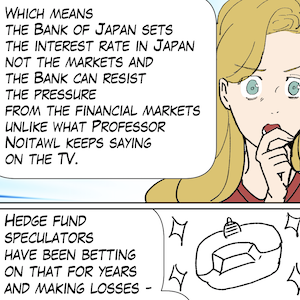Moodys and Japan – rating agency declares itself irrelevant – again
I have very (very) little time today and I am typing this in between meetings. There was a lot of non-news today – the news that pretends to be news and full of import but which in reality is largely irrelevant and just serves to flush out more nonsensical commentary from self-importance financial analysis (mostly located in private banks). Then the non-news commentary suffocates any sensible evaluation and in some cases governments are politically pressured to change policy in a destructive manner – fuelling the next wave of non-news. Today’s classic non-news was the downgrading of Japan by Moodys. Once again, a ratings agency declares itself irrelevant.
